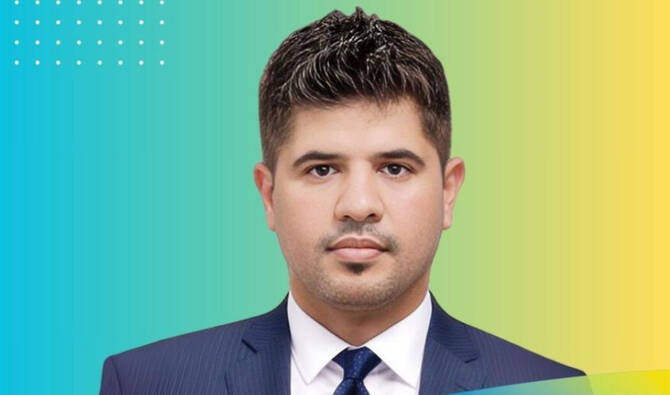CHICAGO: Working as a teacher with members of the deaf and hard-of-hearing community helped a Saudi artificial intelligence scholar realize that technology held the potential to help improve the way they communicate with the world.
After working with people with hearing impairments for more than a decade-and-a-half, Bader Alsharif said he has come to understand that one of the greatest challenges they face is the public’s lack of understanding of sign language. He realized that if this barrier could be overcome, it would not only improve this community’s ability to communicate but also help the wider public better understand the lives of those who rely on signing.
“I decided to focus on sign language and AI because of my close work with students over the past 16 years,” the 39-year-old told Arab News. “I saw the challenges they face when it comes to communication, especially in situations where people around them don’t understand sign language.
“That really touched me and made me want to help. So, using my background in computer engineering and the power of artificial intelligence, I realized we could create a smart system that recognizes sign language in real time and translates it into words.
“This can help bridge the gap between the deaf and hearing community. In simple terms, a camera captures the person making a hand gesture and then AI models analyze those gestures using deep learning and hand tracking. Then the system matches the gesture to letters and words, and displays the meaning of the particular words.”
As Alsharif became more immersed in his academic research, he quickly identified the potential for AI to be a transformative tool in support of deaf students. He personally understands about 30 percent of sign language gestures but the AI-powered program he is developing is designed to interpret the full range of signs, which would help to bridge the communication gap.
The computer engineering scholar has spent several months working with a team to build a dataset that includes every aspect of each sign language gesture and its English translation. The dataset contains nearly 130,000 images of hand gestures, each of which is assigned 21 data points to help the system correctly identify and translate the sign.
Though the initial version is for English translation, Alsharif said datasets can be created for all languages, and his next goal is to create a version that interprets Saudi Sign Language.
“As soon as we have a good dataset, we can implement any sign language translation system into any language,” he added.
Right now, the system is one-way, translating sign language into English, with some limitations. The next challenge, he said, is to reverse the process and expand the system to translate speech, in any language, into sign language.
Originally from Makkah, Alsharif graduated with bachelor’s degree from the College of Technology in Riyadh in 2008 and began working for the Technical and Vocational Training Corporation in Riyadh. In 2017 he received a master’s degree in computer engineering from the Florida Institute of Technology.
His work aims to combine technological innovation with social impact, a goal that positions him as a forward-thinking leader in the use of computer engineering in healthcare.
Alsharif has been studying for a doctorate since 2021 at Florida Atlantic University, where his research focuses on various aspects of sign language-recognition systems, and the use of AI and the internet in the provision of medical services.
He also works as a teaching assistant, guiding and evaluating more than 30 students who are carrying out engineering-design projects. He also assists more than 200 students with advice about technical questions, design principles and project development.
“All these studies use artificial intelligence to help solve real-world problems and support people who have special needs,” Alsharif said.
Alsharif, who lives in Boca Raton, Florida, with his wife and four children, said he is grateful to the government of Saudi Arabia, which made all of his achievements possible. Other innovative projects he has led or been involved with include the opening of digital communications technology company CISCO’s first office in Saudi Arabia, and he has has managed the optimization of performance and security for more than 300 devices.
He has also published more than 10 peer-reviewed papers, with a focus on AI, cybersecurity and the Internet of Things, particularly as they relate to healthcare. He says he has a particular commitment to advancing technology and fostering inclusivity, particularly through his work with individuals with special needs.
















